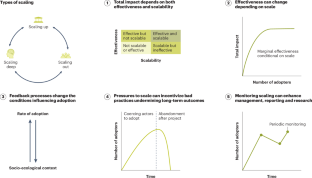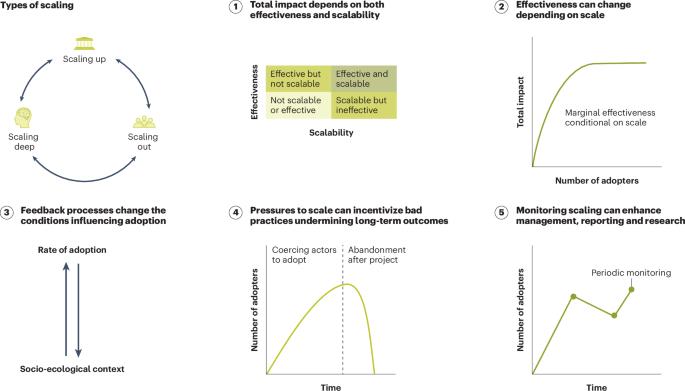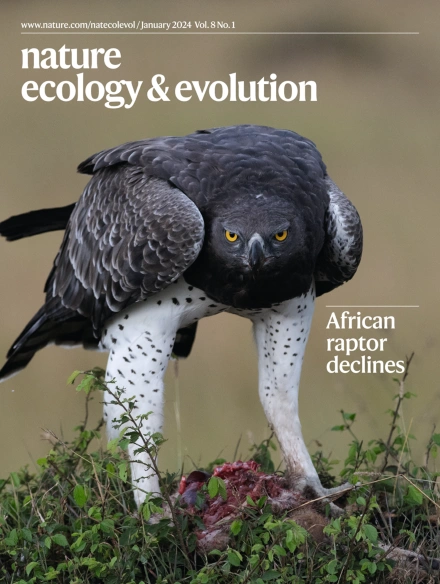Five lessons for avoiding failure when scaling in conservation
IF 13.9
1区 生物学
Q1 ECOLOGY
引用次数: 0
Abstract
Many attempts to scale conservation actions have failed to deliver their intended benefits, caused unintended harm or later been abandoned, hampering efforts to bend the curve on biodiversity loss. Here we encourage those calling for scaling to pause and reflect on past scaling efforts, which offer valuable lessons: the total impact of an action depends on both its effectiveness and scalability; effectiveness can change depending on scale for multiple reasons; feedback processes can change socio-ecological conditions influencing future adoption; and the drive to scale can incentivize bad practices that undermine long-term outcomes. Cutting across these themes is the recognition that monitoring scaling can enhance evidence-informed adaptive management, reporting and research. We draw on evidence and concepts from disparate fields, explore new linkages between often isolated concepts and suggest strategies for practitioners, policymakers and researchers. Reflecting on these five lessons may help in the scaling of effective conservation actions in responsible ways to meet the triple goals of reversing biodiversity loss, combating climate change and supporting human wellbeing. This Perspective encourages conservation practitioners to learn from past efforts to scale conservation actions in the hope that enhanced understanding of linkages between scaling, effectiveness and social justice will benefit future attempts to scale up, out and deep.


在扩大保护规模时避免失败的五条经验
许多扩大保护行动规模的尝试都未能实现预期效益、造成意外伤害或后来被放弃,阻碍了生物多样性损失曲线的弯曲。在此,我们鼓励那些呼吁扩大规模的人暂停并反思过去的扩大规模努力,这些努力提供了宝贵的经验教训:一项行动的总体影响取决于其有效性和可扩展性;有效性会因多种原因而随规模变化;反馈过程会改变影响未来采用的社会生态条件;扩大规模的动力可能会激励破坏长期成果的不良做法。贯穿这些主题的是这样一种认识,即对规模的监测可以加强以证据为依据的适应性管理、报告和研究。我们借鉴了来自不同领域的证据和概念,探索了往往孤立的概念之间的新联系,并为实践者、决策者和研究人员提出了策略建议。反思这五条经验有助于以负责任的方式推广有效的保护行动,以实现扭转生物多样性丧失、应对气候变化和支持人类福祉的三重目标。
本文章由计算机程序翻译,如有差异,请以英文原文为准。
求助全文
约1分钟内获得全文
求助全文
来源期刊

Nature ecology & evolution
Agricultural and Biological Sciences-Ecology, Evolution, Behavior and Systematics
CiteScore
22.20
自引率
2.40%
发文量
282
期刊介绍:
Nature Ecology & Evolution is interested in the full spectrum of ecological and evolutionary biology, encompassing approaches at the molecular, organismal, population, community and ecosystem levels, as well as relevant parts of the social sciences. Nature Ecology & Evolution provides a place where all researchers and policymakers interested in all aspects of life's diversity can come together to learn about the most accomplished and significant advances in the field and to discuss topical issues. An online-only monthly journal, our broad scope ensures that the research published reaches the widest possible audience of scientists.
 求助内容:
求助内容: 应助结果提醒方式:
应助结果提醒方式:


